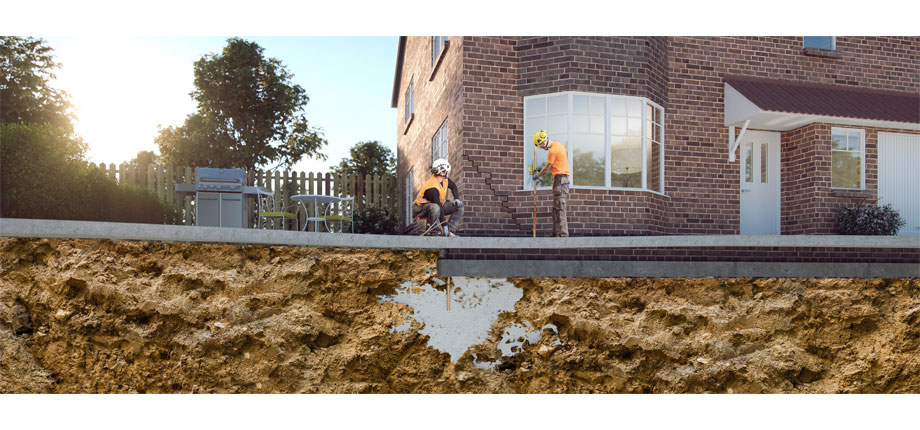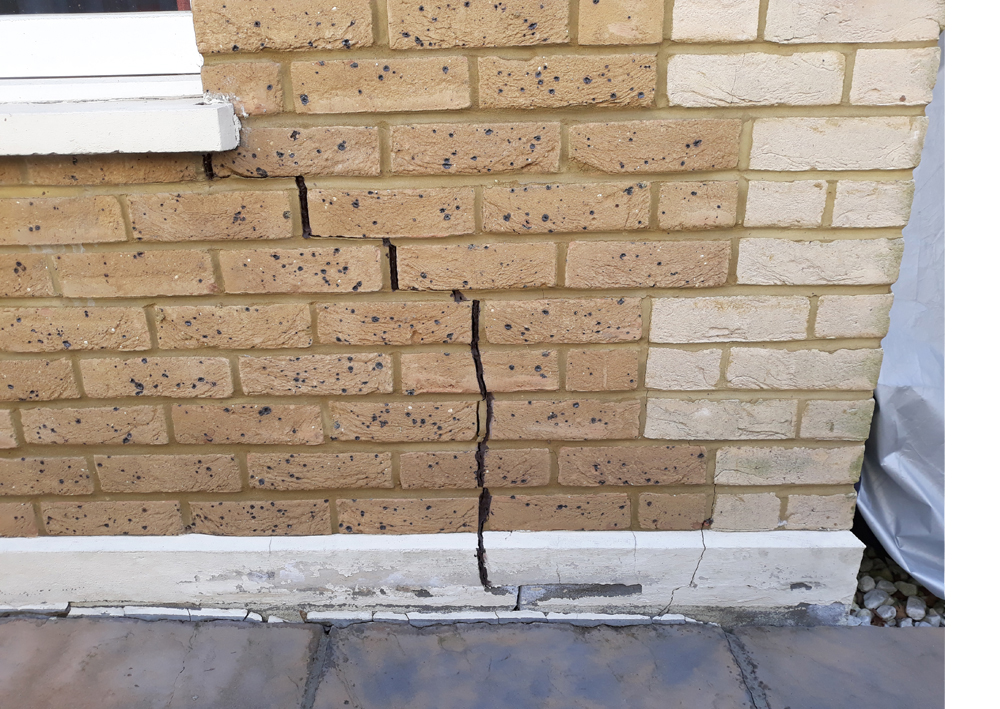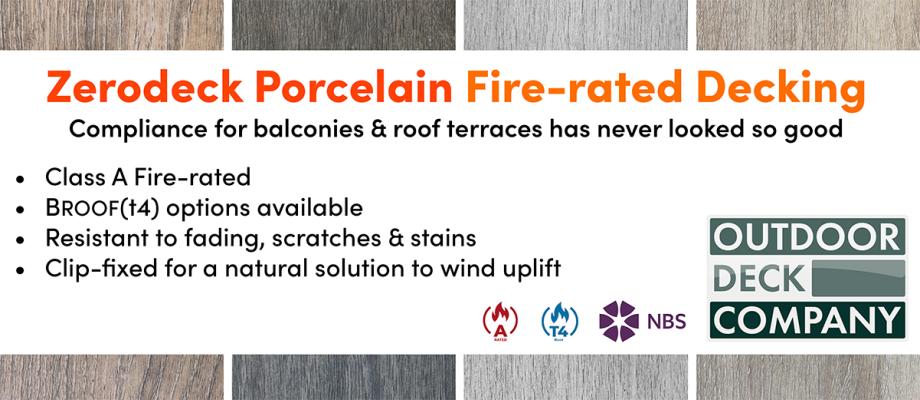With the changing climate, the past three years have seen an upsurge in subsidence affecting housing in the UK and this trend will continue. With 2.5 million properties, Housing Association's require a fast solution that mitigates the need for properties to remain vacant or tenants decanting. In 2018-19 the government reported 2,674 cases of solid wall repairs to their local authority stock of 1.5m homes, with 3,900 planned repairs for 2020. If only half of these cases are subsidence, at an average repair cost of £6000, that equates to a £10m+ annual subsidence repair bill. By applying the government figures to the 2.5m HA stock, annual subsidence repair costs could be anywhere between £20-30m. Furthermore, when those figures are considered over decades over £300million could be spent.

To add to this, the Fitness for Human Habitation Act is ramping up more pressure to take swift action to repair damaged properties. Councils and associations must embrace modern methods to manage this cost and drive through efficiencies to reduce operational expenditure. Not only is the direct repair cost significant, but the indirect cost of re-housing tenants during repair works and the lost income of vacant stock pushes this figure up more steeply. While the financial impact is significant, the effect on tenants who need to be re-housed temporarily is also straining, particularly for the elderly.
 As the climate continues to warm, the subsidence issue will not go away - spring 2020 a further example of weather events causing structural movement. The sector needs to embrace forward-thinking solutions to minimise the overall cost and disruption that subsidence creates. There are two areas where improvements can happen, the physical repair, and the process. In both respects, the insurance sector has already innovated to devise a new process of working. The insurance market has a sizeable subsidence claims sector, where the issue of cost and speed of dealing with a subsidence claim has historically been long-winded, and equally the repair process has used out-dated and disruptive underpinning methods.
As the climate continues to warm, the subsidence issue will not go away - spring 2020 a further example of weather events causing structural movement. The sector needs to embrace forward-thinking solutions to minimise the overall cost and disruption that subsidence creates. There are two areas where improvements can happen, the physical repair, and the process. In both respects, the insurance sector has already innovated to devise a new process of working. The insurance market has a sizeable subsidence claims sector, where the issue of cost and speed of dealing with a subsidence claim has historically been long-winded, and equally the repair process has used out-dated and disruptive underpinning methods.
The last 18 months have seen ground engineering contractor Geobear, in partnership with insurers Legal & General and loss adjusters Sedgwick UK, launch an award-winning initiative that significantly expedited the repair process for home-owners with subsidence insurance claims.
Within the insurance industry, the average time between an insurance claim for subsidence and the actual repair work is 12-18 months (often much longer). Furthermore, the repair process itself often used traditional underpinning solutions taking up to two months. The Geobear initiative resulted in the claims process reducing to as little as 12 weeks, ultimately reducing the workloads of the supply chain, providing certainty in terms of costs and business planning, and providing a rapid solution for the end customer, with minimal disruption. Critically, Geobear complete remediation work within one or two days - they use a specialist geopolymer injection method, that requires no excavation and residents can stay in their property.
The industry partnership developed by Geobear is now being replicated in the social housing sector. While the company already works with many Associations and contractors providing bespoke subsidence repair, new agreements will revolutionise how the social housing sector approaches subsidence repair.
Geobear Residential Director, Alex Finch, "We certainly illustrated through the partnership with Legal and General and Segwick that bringing a bit of lateral thinking into play pays dividends. We worked on the insurance partnership for 12 months, but that is well optimised now, and we can deliver agreements with HA's within half that time. This will certainly save Associations both time and money "
The business is already providing subsidence remediation to many HAs and councils. Regardless of the nature of the procurement, there is clear evidence that a closer working arrangement with HA's who have stock affected by subsidence will be a benefit to all parties concerned.
To discuss working with Geobear, please contact Alex Finch, alex.finch@geobear.com 0800 084 3503.
Visit the Geobear website here
- Log in to post comments















